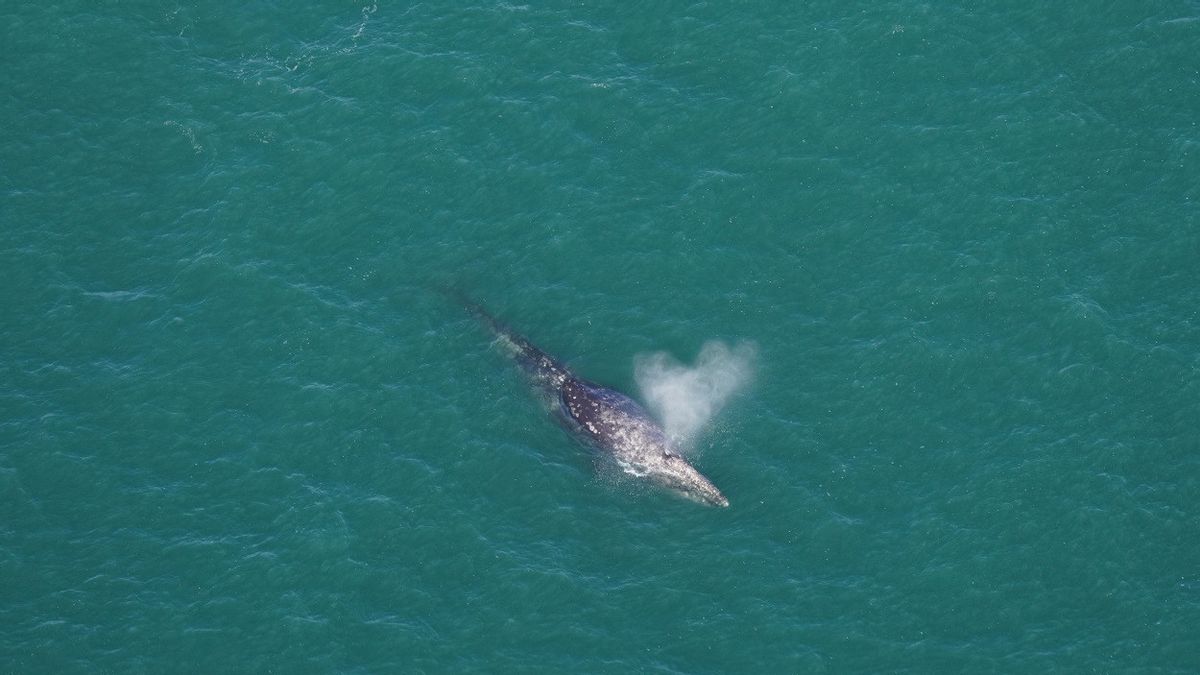JAKARTA - Scientists have confirmed the presence of a whale off the coast of New England, the extinct United States in the Atlantic Ocean two centuries ago, findings that attracted attention and described the impact of climate change.
Researchers from New England Aquarium in Boston found the gray whale flying 50 kilometers south of Nantucket, Massachusetts in the US on March 1.
The whale, which weighs 27,215 kilograms, usually lives in the northern Pacific Ocean. This particular whale may have been in Atlantic waters for several months, as scientists believe the whale was spotted off the coast of Florida in December.
Gray whales disappeared from the Atlantic Ocean in the 18th century, but there have been five documented observations of the animal in Atlantic and Mediterranean waters in the past 15 years, the aquarium said in a statement, reported by Euronews April 1.
Researchers who discovered the animal off the coast of Massachusetts said they were initially skeptical, but after 45 minutes around the area, they were able to take photos confirming that the animal was indeed a gray whale.
"I don't want to say it out loud, because it looks crazy," said Orla O'Brien, associate researcher at the Anderson Cabbot Center for Ocean Life at New England Aquarium.
"My brain is trying to process what I see, because these animals are something that shouldn't be in these waters," said Research Technician Kate Laemmle.
"We laughed because of how wild and exciting this is, seeing animals that disappeared from the Atlantic hundreds of years ago!" he continued.
Scientists say they are very happy to see the animal, but its presence may have something to do with planetary warming.
The Northwest, which connects the Atlantic and Pacific Oceans through the Arctic Ocean in Canada, has been ice-free in the summer in recent years, they said.
That means the gray whales can more freely travel through the line in the summer when they are usually blocked, scientists say.
O'Brien said the arrival of the animal in New England serves as a reminder of how quickly marine species respond to climate change if there is a chance.
It is known that gray whales were almost hunted to extinction during the era of commercial whaling.
Currently, the whale has recovered to the point of being considered the "most less concerning" species by the International Union for Conservation of Nature.
관련 항목:
But the organization considers the whale population in the western region living in Asia to be endangered.
These whales can be recognized by the absence of back fins and spotted appearances that make them very different from whales that are commonly seen in New England such as bow whales and minke whales.
His voice is also very different. While the pulsing whale is known for its electrifying singing, the gray whale emits a efficacious sound, buzz, and voice.
The English, Chinese, Japanese, Arabic, and French versions are automatically generated by the AI. So there may still be inaccuracies in translating, please always see Indonesian as our main language. (system supported by DigitalSiber.id)













